There's no telling what the next development in technology is going to be — or when it's going occur. It seems like there's one every minute, and I end up feeling like I constantly have to keep up with every change.
It's exhausting, in my humble opinion.
The vast majority of us have cell phones that we carry at all times, like a life raft. It seems like everything I need is right in the palm of my hand: my friends are only as far as my fingertips, unless I make a conscious decision to turn off all of my devices. I don't have to wait for the evening news to know what's happening in the world — I can simply check Facebook or Twitter for updates.
Basically, whenever I want to know something, the answer is only a click away.
So, what happens when you take that power away? It seems unfathomable, but for 5 days, I managed to "unplug" totally from all forms of technology outside of work. I eliminated all technology and limited my use of electricity to discover just how much I've come to rely on these very things.
The Challenge
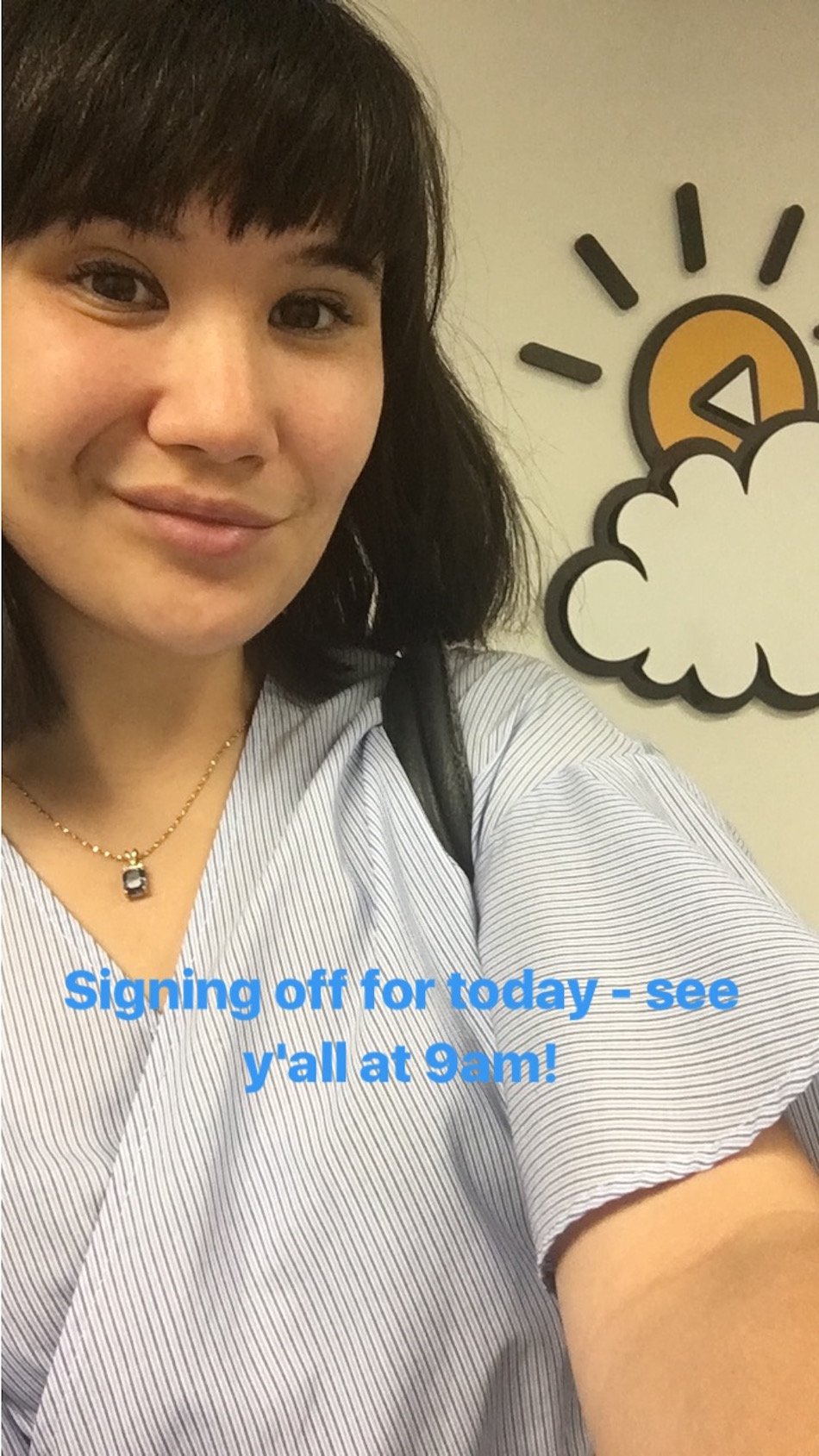
I decided that, for 5 days, before 9 a.m. and after 6 p.m. (my work hours), I would totally cut myself off from technology and electricity. In order to truly unplug, I had to be totally committed to living without distractions, which also meant that I couldn't cheat and go to the movies or a museum after work. The only times I would be able to take out my phone (which was to be in the event of an emergency, but silenced so that I wouldn't be able to get notifications) would be to take a few photos for this piece. I couldn't even allow myself to turn on the lights or use my air conditioner — and it's the middle of summer!
The exceptions: using the bathroom, using the kitchen, and setting my morning alarm. I couldn't be late to work, after all!
What I Did To Fill The Time
As a modern woman living in a modern age, I was absolutely clueless as to how I would fill the hours once I got home from work. I actually had to research all the things that I could do over 5 days and make a list of activities that fit my parameters.
Day One
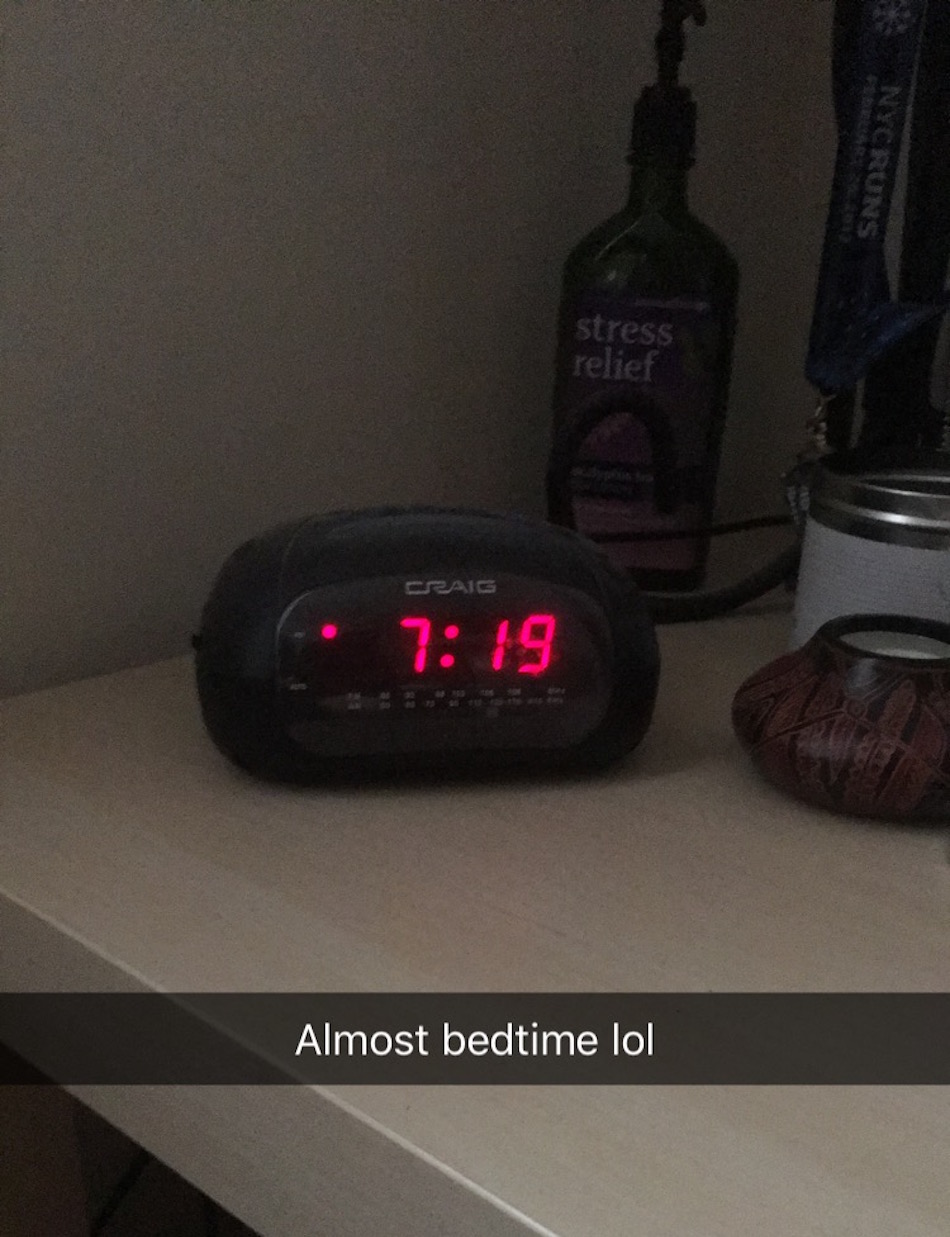
The first thing I noticed once I got home on day one was how early it's getting dark. On a typical night, when I'm able to turn on my lights, it's easy to forget that sunset at this point in August is around 8 p.m.
But this week was far from typical. By the time I got home, I only had an hour of daylight before I had to do everything by candlelight.
That night though, I decided that it was a good opportunity to get some sleep as I felt a cold coming on. I went to bed at 7:30 p.m, and woke up unusually well-rested the next morning.
Day Two
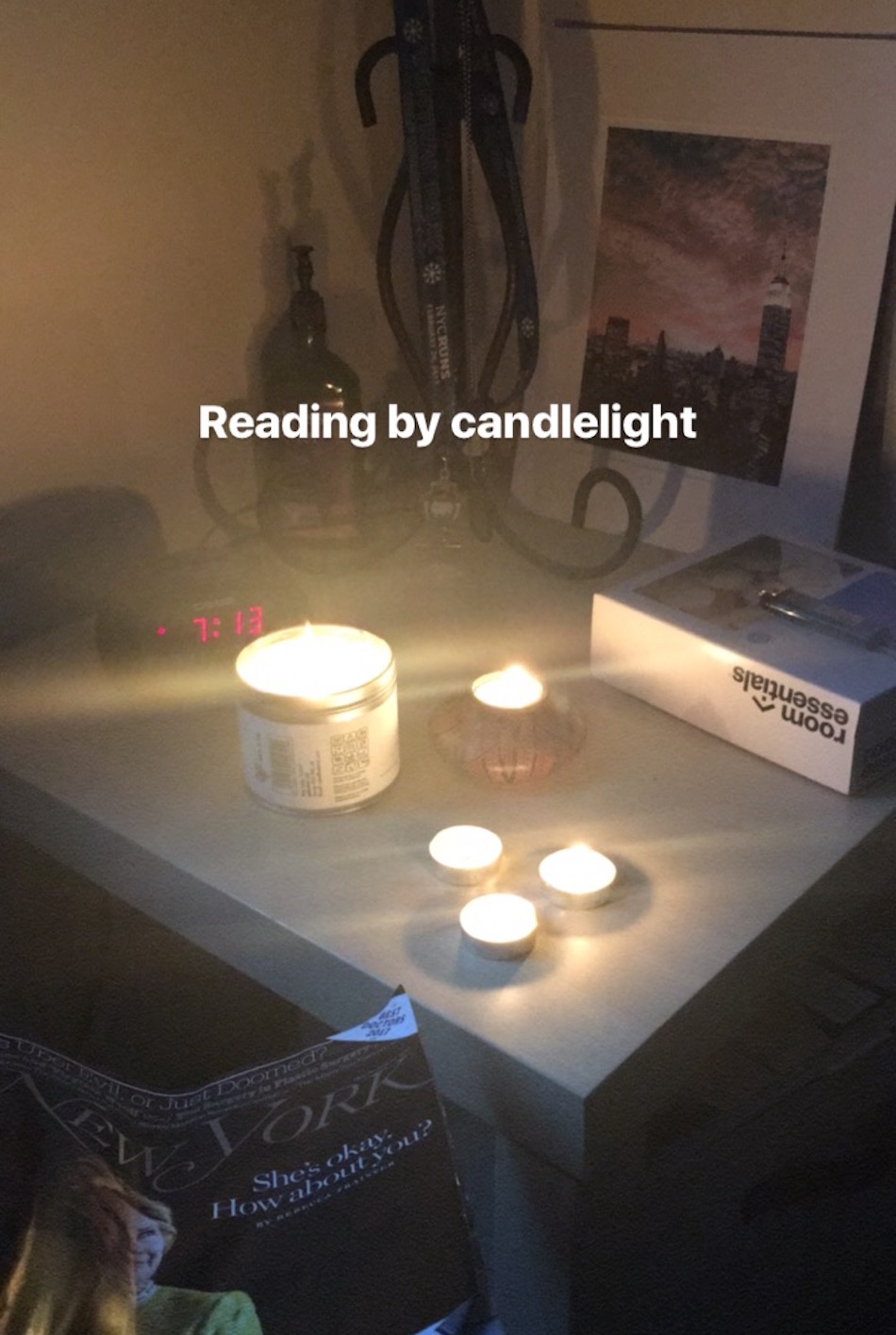
Feeling better the next night, I knew there were a few hours ahead of me before bedtime. Here's what was most daunting about about it, though: I am not used to silence. I listen to music as I commute (more on that later), I often have the television on in the background, or videos playing on my phone.
I realized, upon stepping foot in my room (without turning on the lights), that I needed to compensate for one of the senses that wasn't being used. So I settled down to read by candlelight, hoping that I would be able to tolerate the sound of my own breathing.
I didn't last very long. After about 2 hours of alternating between a book and a magazine, I decided that my mind was better off quiet. I couldn't even remember the last time I had read a book without listening to some music at the same time. So I tucked myself in around 9 p.m., hoping that the next night would be easier.
Day Three
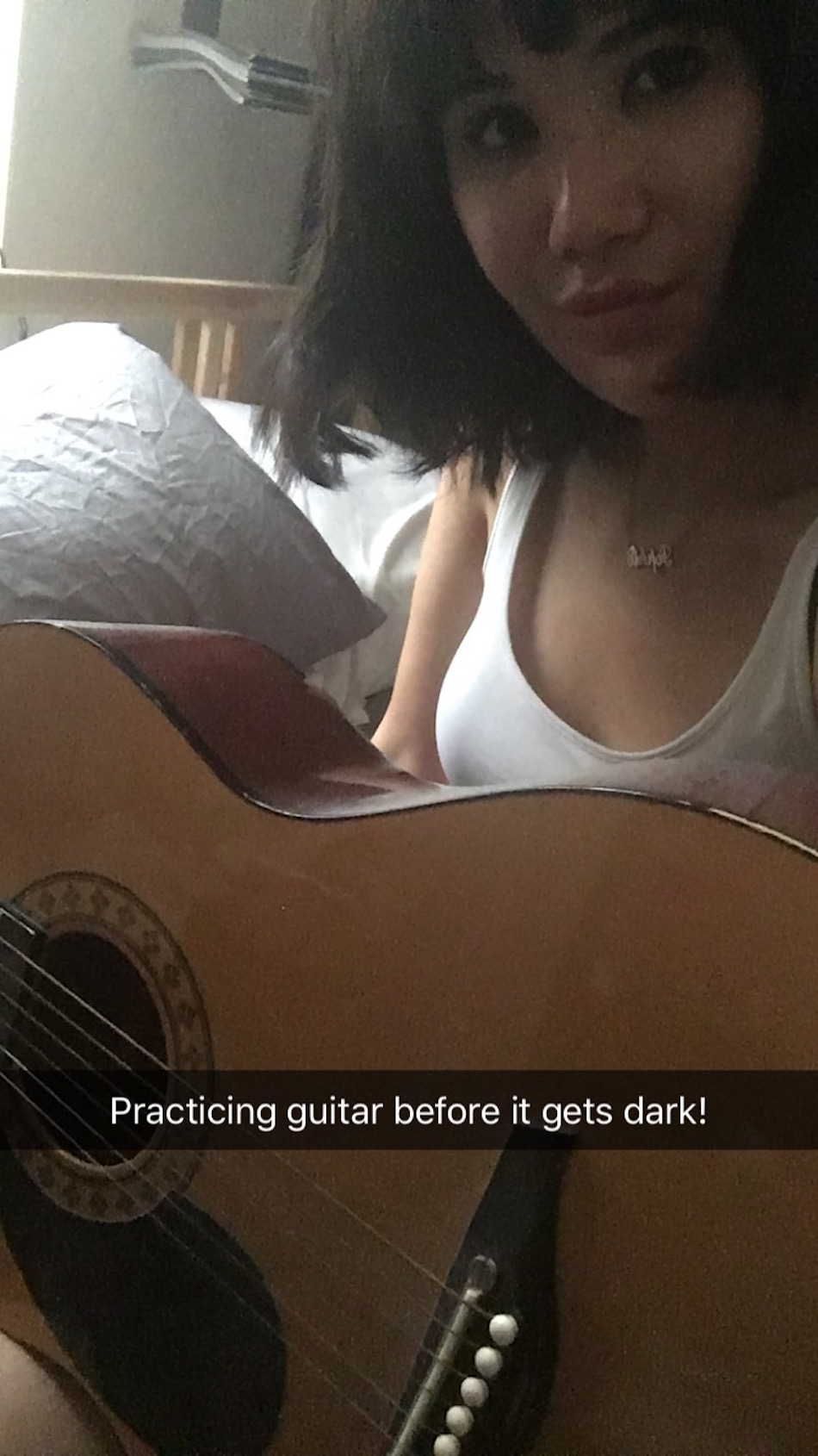
The next night, I arrived home at 7 p.m. Instead of reading, I decided to try something a little more engaging that would require my full attention — and that would fill the silence. I never get the chance to practice playing the guitar, so I decided to give it a shot.
To be clear, I don't actually know how to play guitar. I had to be patient and learn the basics from a book I bought some time ago, but I managed to strum a few notes on the instrument. Before I knew it, I needed to light a few candles to continue. Time was flying, and I had found a temporary solution to the night before's problem. I was fully engaged in the endeavor, and I felt that this was a small victory. I wasn't just learning a new skill, I was learning how to be patient with myself.
Day Four
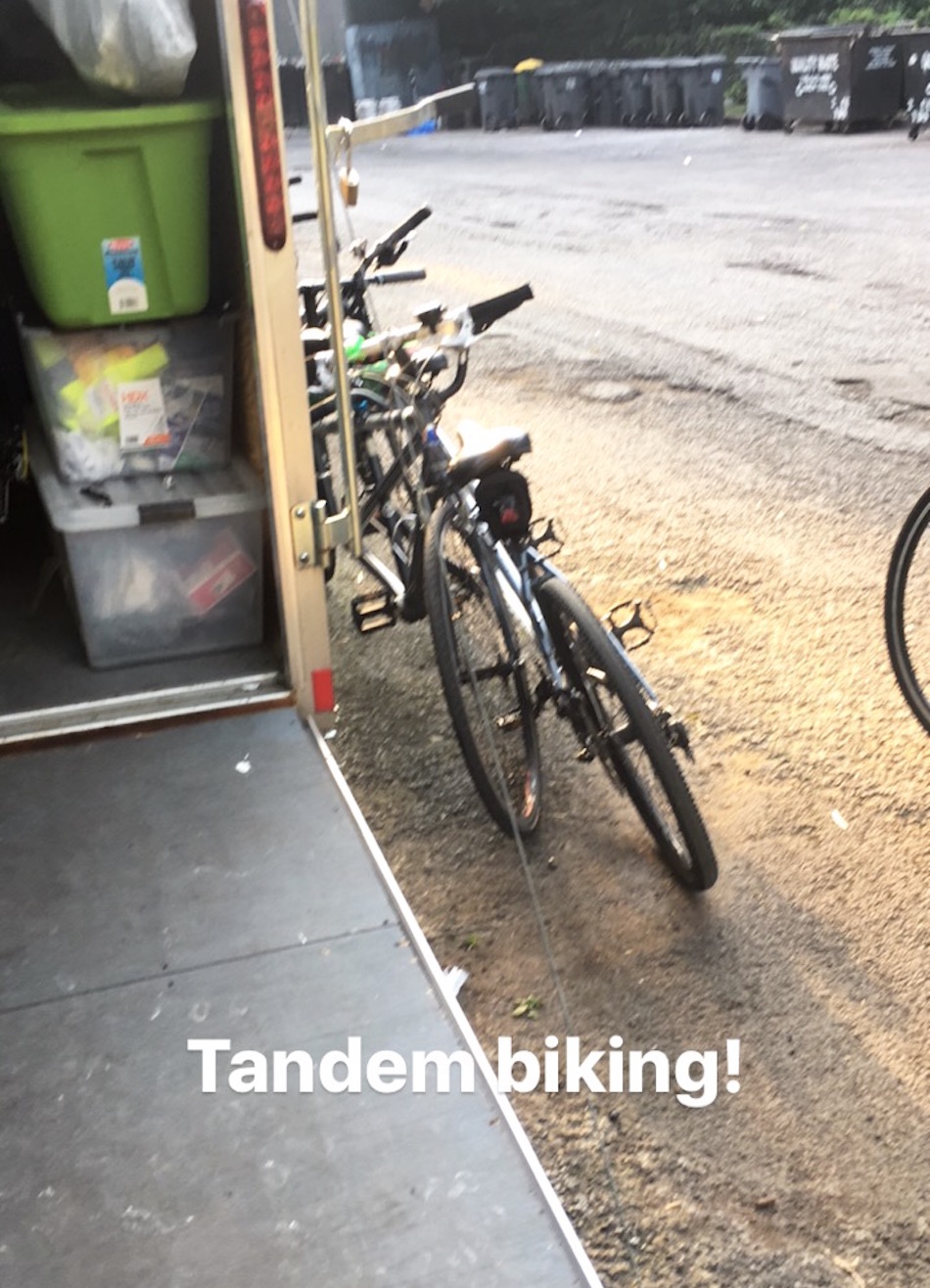
On the fourth day of my little experiment, I thought I could spend some time outside and get a little exercise.
I volunteer with an organization that pairs bike riders with individuals with visual impairments, and I was thrilled to find out that there was a session right after I finished working.
Tandem biking isn't easy. It requires a lot of attention and is physically demanding. You're responsible for yourself and for the person pedaling behind you. You have to cue your partner when you will be stopping the bike, so they're not thrown off it. And perhaps most importantly, you have to bond with them. Many of these men and women can't see what's around them. You start paying attention to the little things, like the color of the sunset (or the fact that the sun is setting), or the changing environment.
I was paired with a wonderful woman named Susan, who was very sympathetic to the fact that I was a fairly inexperienced tandem bike rider. We managed to keep riding without stopping our conversation, and I found myself out of breath more than once. But I like to think that I made a friend that day.
I got home around 9:30 p.m., and, exhausted from the bike ride, passed out 45 minutes later.
Day Five
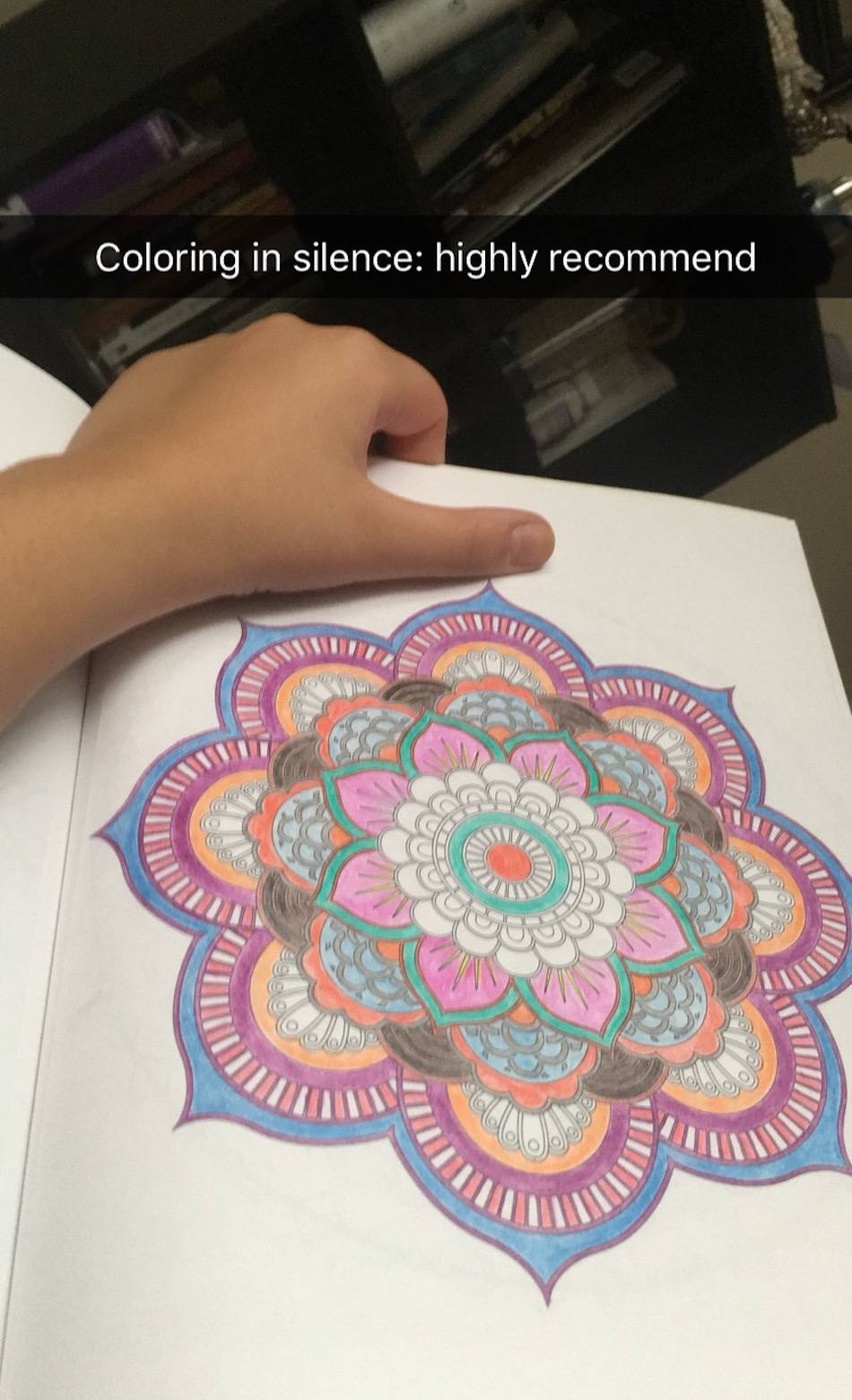
By night five, I have to admit that I was relieved I'd made it to my final night without technology and electricity. I had gotten used to using candles, though I constantly lived in fear of burning my apartment building down. I decided to attempt facing the silence again, after two days of distracting myself. This time around, I chose a different activity: coloring.
I've always been a fan of coloring because it's close to meditating. Unfortunately, I've never really had the patience for meditation; I only lasted 5 minutes before giving up when I tried. With coloring though, which has similar effects on the brain as meditation, I'm able to sit for long periods of time without needed or wanting to get up. It quiets my mind like nothing else can.
And just as I suspected, I was able to color in silence for a few hours before the strain of the darkness forced me to hang up my hat and go to bed. It was relaxing, to say the least.
Observations
Overall, I thought that cutting myself off from technology and not using electricity was a pleasant experience, but it heavily impacted my life in ways both expected and unexpected.
Daily Routine
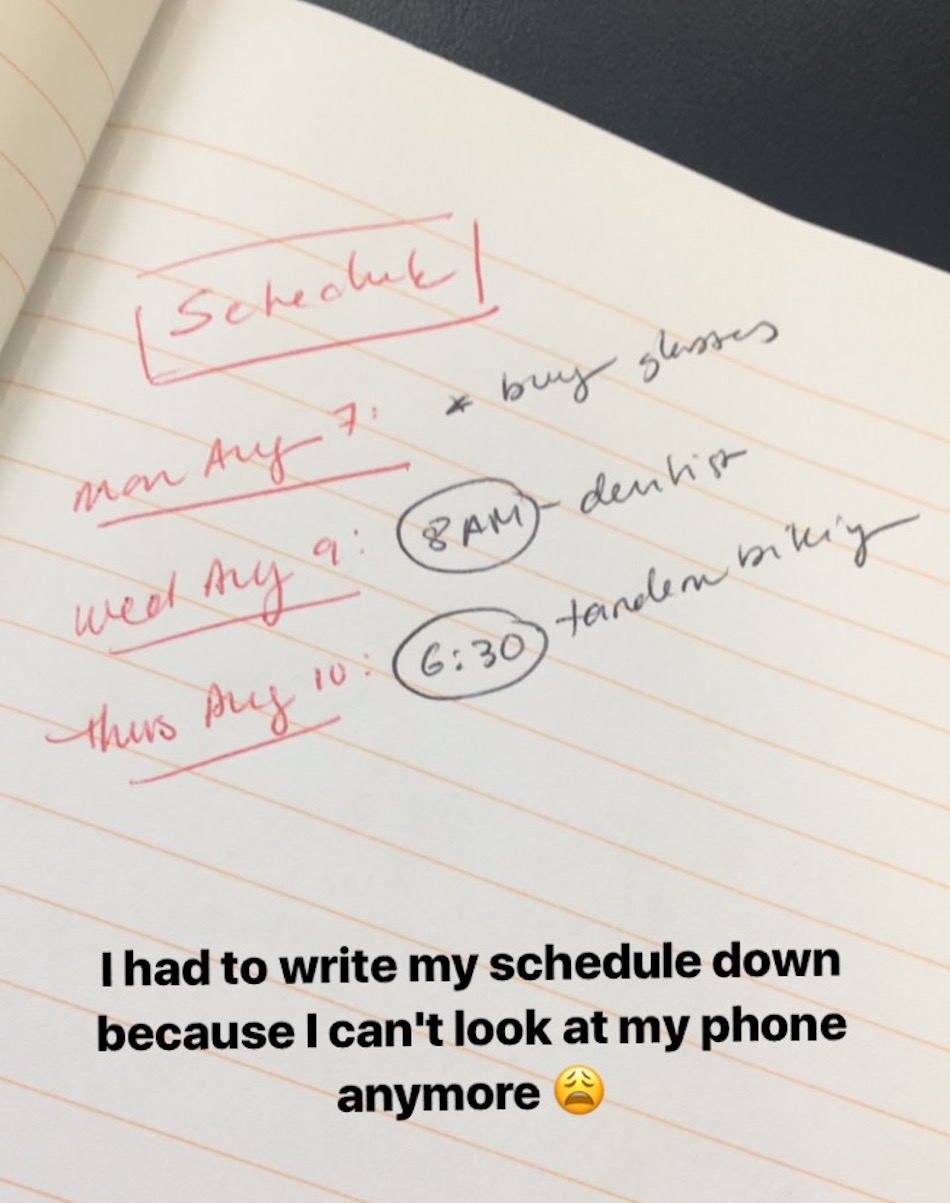
I didn't realize how much I relied on technology and electricity in my daily routine until those five days were over. As expected, I struggled without the ability to turn on my lights when I got home or use my air conditioner. But I also found that outside of work and home, it was hard to tell time. I have a digital watch, and because I had to turn it off while I was out and about, I had no sense of time. I also couldn't look up what the weather was like in the morning so I would know how to dress. I couldn't make a phone call when I wanted to if I needed to talk to my parents or a friend, making the experiment very isolating.
All those little things were only very minor to the biggest changes in my daily routine: I couldn't listen to music when I wanted to, making commutes very long and boring, despite having brought a magazine to occupy myself. I found myself paying attention to everything without wanting to. I focus best while listening to music, and doing anything without it is tedious. By the fifth day, I wasn't bothered by this as much, but I yearned for sound other than the screeching of the train and the man snoring in the seat next to me.
I also missed out on last-minute plans my friends had made over the course of those days. I arrived in the office with a handful of notifications about emails, news reports, and text messages. A friend had asked me if I wanted to play pool one night, and I obviously didn't get the message until the next day. I quickly apologized without giving an explanation for why I couldn't answer it at 7:30 p.m. the night before.
Finally, I'm very naturally scatter-brained; I have to write things down to organize my thoughts. Sometimes I'll have an idea for a story, or a topic I want to research, and I would jot it down on my phone. But for 5 days, I carried around pen and paper, hastily writing those things down and keeping them in my pocket until I could use a computer again. I even had to write my schedule down, instead of consulting my phone's calendar.
Breaking Bad Habits
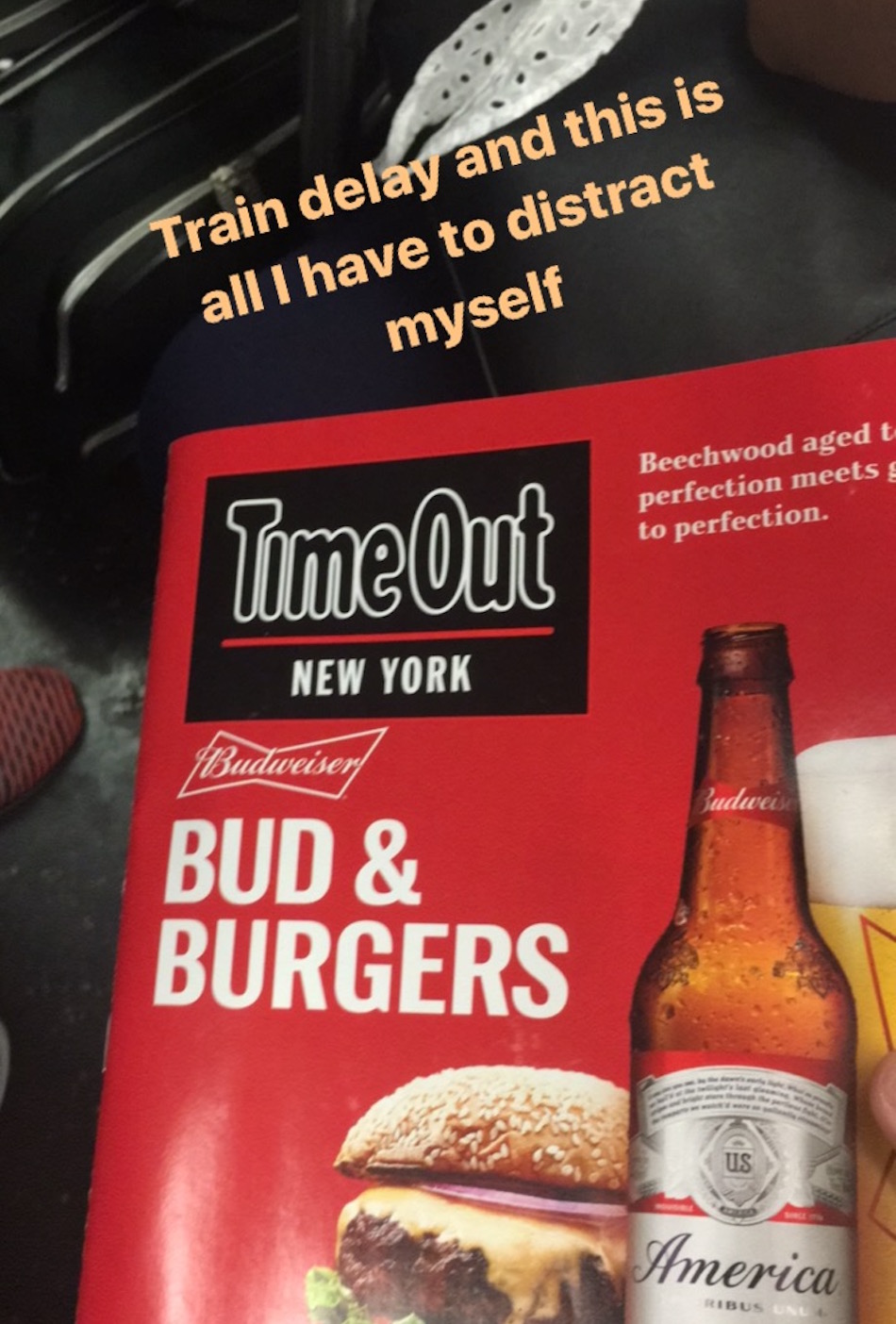
Some people sleepwalk. I sleep-check all social media and email. I have vague recollections of checking Facebook and Instagram only half-awake at 3 a.m. because it's the first thing I do when I wake up.
I know, it's a bad habit — but as someone who's used to being plugged in at all times, I get anxious about the thought of missing a beat, even in the middle of the night.
The scary thing is that I didn't know how much of a routine it had become until I had to consciously stop myself from doing it over the course of these 5 days.
Not being able to take pictures was also a change I had to get used to. Usually, if I see something noteworthy like a beautiful sunset or a delicious meal, I make a point of taking a picture to post on social media without actually appreciating the thing I'm taking a picture of. If I had been able to use my phone, I surely would have taken pictures in the park with my tandem bike buddy, but instead, I was able to focus on interacting and communicating with her.
Finally, and maybe obviously, I didn't feel the need to hold my phone in my hand at all times. My phone is always in my sight, not only because I'm afraid to lose it, but because I'm always using it. This week, though, I just tucked it away in my purse while I wasn't at work. I felt naked and anxious, but free at the same time. I was making a conscious choice to ignore the world that was moving around me. Even if I knew that I would catch up with it eventually, not knowing things instantly bothered me.
Final Thoughts
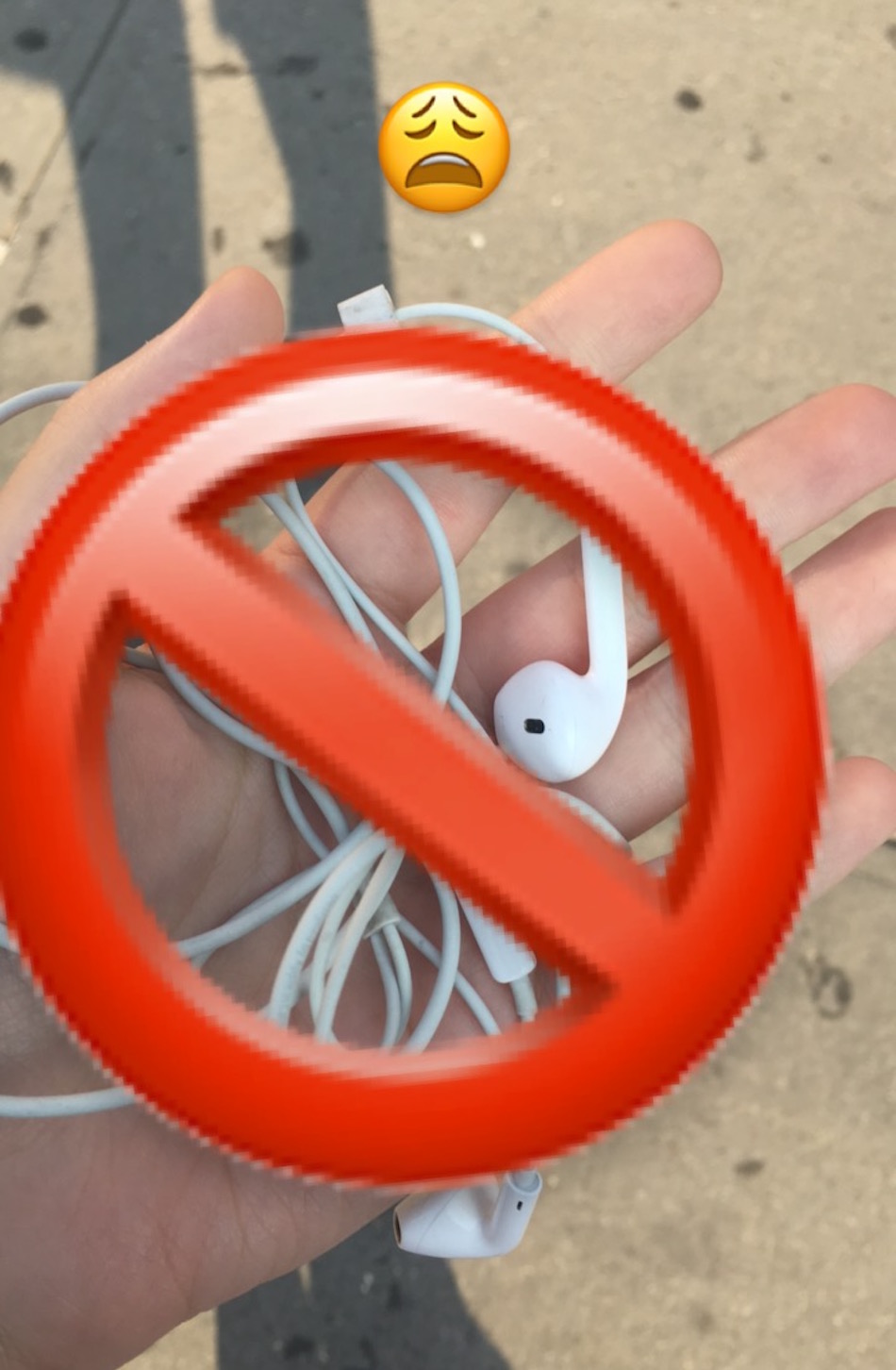
As a product of the 90's, there was only a brief time when I was living without technology. I remember the time of the walkman, then of the disk jockey; I grew up in a world full of music because I took my gadgets everywhere around with me. I learned very quickly that a silent world was a dull one because I didn't know any better, at that age.
Now, music serves a totally different purpose for me. It's not just a distraction, but a method of avoidance. Without it, I can't drown out the man catcalling me from just feet away, or the stranger cursing across the subway. And on really bad days, I can't even shut out the chatter in my mind or the sound of my own voice.
Five days was definitely a long time to go without electricity or technology, but I would recommend this to anyone for a short amount of time. For a few hours, put your phone away, turn off all the lights, and focus on yourself— it's definitely worth your while.
Please SHARE if you think you'll try going 'unplugged' for yourself!




